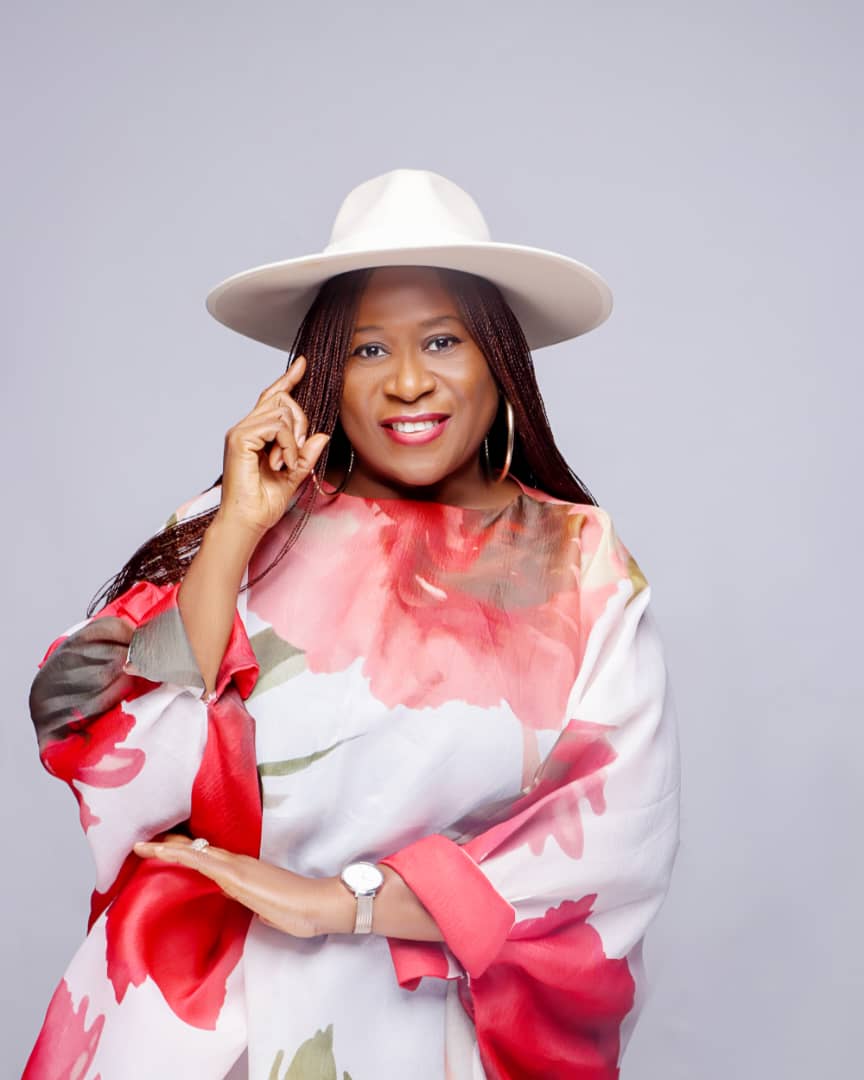
From Waste to Worth: Olusola Babatunde’s Journey in Sustainable Fashion
Lagos, November 11th, 2024.
In a world driven by fast fashion, Olusola Babatunde stands as a transformative figure in Nigeria’s fashion industry, turning textile waste into valuable, eco-friendly fashion. As the founder of OSC Ltd and the OSC Research and Creative Foundation, Babatunde has built a brand rooted in sustainability and community impact. Her journey not only redefines waste but empowers future designers to envision a circular economy. Here’s her story and advice for young designers ready to make a meaningful impact.
1. Tell us about your journey into sustainable fashion. How did OSC Ltd. come to life?
My journey began with a love for fashion that creates positive change. After years of honing my skills in garment production and training young people, I saw an opportunity to address waste issues within the industry. Fashion often overlooks the potential in discarded materials. I wanted to challenge that by blending creativity with environmental consciousness, making OSC a brand that transforms waste into worth and builds up communities through skill development.
2. What inspired you to focus on upcycling and sustainable fashion rather than traditional design?
My shift to sustainable fashion was inspired by the need for a deeper impact in design. Working with the diverse body types and style preferences of Africans showed me that fashion could be both inclusive and resourceful. The defining moment came when I realized that transforming waste could empower not only the environment but young people by showing them the potential in unconventional resources. Sustainable fashion became my way to honor both the planet and African craftsmanship.
3. What advice do you have for emerging designers looking to break into sustainable fashion?
For young designers, start by embracing the unknown. Sustainable fashion is a relatively new field with vast opportunities. Be willing to experiment with upcycled materials, connect with mentors who champion green fashion, and keep the environment in mind with every piece you design. Small steps, like reducing waste and considering alternative materials, have a large impact, building a foundation for a career that’s both rewarding and responsible.
4. What would you say to entrepreneurs uncertain about joining the sustainable fashion movement?
Sustainable fashion isn’t just a career; it’s a movement. OSC was built on the idea that meaningful design can drive both economic growth and environmental impact. Embracing this field allows you to align your work with values of waste reduction, community empowerment, and innovation. Start with a cause that resonates with you—whether it’s reducing waste or promoting local resources. With a circular mindset, every challenge becomes a chance to reshape fashion sustainably.
5. How would financial support impact OSC’s mission, and what opportunities could it create for youth?
With expanded financial support, OSC could develop a sustainable fashion ecosystem—starting with waste recovery and upcycling to training centers for the next generation. Collaborating with artisans and manufacturers would create green jobs for youth and offer meaningful pathways in sustainable practices. This would strengthen local economies and make it easier for young people passionate about fashion and the environment to find purpose-driven careers in the green economy.
6. What major initiatives would you invest in if given the resources to scale your impact?
With ample resources, I’d turn OSC into a hub for sustainable training and innovation. We’d focus on vocational programs in upcycling, natural dyeing, and resource recovery, equipping young designers with skills for a greener future. Another priority would be creating a “Sustainable Fashion Incubator” where budding designers could develop green business models and receive mentorship, nurturing ideas into impactful brands. Such initiatives would not only expand OSC but foster a community of sustainability-driven designers.
7. What challenges do you face in upcycling, and what keeps you going?
The challenges are many, from sourcing materials to shifting consumer perspectives. Yet, these obstacles remind me why OSC exists—to redefine fashion and give waste a second life. Seeing young designers in our programs transform discarded materials into wearable art is inspiring. It’s this vision of fashion as a force for good that keeps me moving forward, knowing every challenge contributes to a larger purpose.
8. Can you share a story where your work has made a difference in the community?
One of my favorite initiatives was an upcycling workshop for rural women, where they learned to turn textile scraps into marketable products. The financial independence they gained was life-changing, showing that sustainable fashion can uplift entire communities. I hope this story inspires young people to see sustainable fashion as a way to make an impact not only in their lives but in the lives of others.
9. What’s the most rewarding part of working in sustainable fashion?
The greatest reward is witnessing how fashion can transform lives. Sustainable fashion fosters economic growth, protects the environment, and empowers communities. As it grows, this field sends a powerful message to future leaders: fashion can be a force for good, creating opportunities that benefit people and the planet alike.
10. Why should young people consider sustainable fashion and the circular economy as career paths?
Sustainable fashion offers young people a career filled with purpose. The circular economy opens doors for innovative, eco-conscious design, and provides solutions to environmental issues like waste and climate change. This industry not only allows you to express creativity but also to create lasting, positive change in the world. If you’re passionate about making a difference, sustainable fashion is a deeply impactful path.
11. What message would you like to share with the next generation about sustainable practices?
To the next generation: sustainable practices are no longer optional. They are essential. Embracing sustainability in fashion conserves resources, reduces environmental harm, and aligns your career with values that protect our planet. If you’re driven by purpose and innovation, sustainable fashion offers a fulfilling, impactful future


